WSJ Graphical Roadmap: How Your Personal Information Migrates from App, to Broker, to the Government12/5/2023
A report in The Wall Street Journal does a masterful job of combining graphics and text to illustrate how technology embedded in our phones and computers to serve up ads also enables government surveillance of the American citizenry.
The WSJ has identified and mapped out a network of brokers and advertising exchanges whose data flows from apps to Defense Department, intelligence agencies, and the FBI. The WSJ has compiled this information into several illustrative animated graphs that bring the whole scheme to life. Here’s how it works: As soon as you open an ad-supported app on your phone, data from your device is recorded and transmitted to buyers. The moment before an app serves you an ad, all advertisers in the bidding process are given access to information about your device. The first information up for bids is your location, IP address, device, and browser type. Ad services also record information about your interests and develop intricate assumptions about you. Many data brokers regularly sell Americans’ information to the government, where it may be used for cybersecurity, counterterrorism, counterintelligence, and public safety – or whatever a federal agency deems as such. Polls show that Americans are increasingly concerned about their digital privacy but are also fatalistic and unaware about their privacy options as consumers. According to a recent poll by Pew published last month, 81 percent of U.S. adults are concerned about how companies use the data they collect. Seventy-one percent are concerned about how the government uses their data, up from 64 percent in 2019. There is also an increasing feeling of helplessness: 73 percent of adults say they have little to no control over what companies do with their data, while 79 percent feel the same towards the government. The number of concerned Americans rises to 89 percent when the issue of children’s online privacy is polled. Crucially, 72 percent of Americans believe there should be more regulation governing the use of digital data. Despite high levels of concern, nearly 60 percent of Americans do not read the privacy policies of apps and social media services they use. Most Americans do not have the time or legal expertise to carefully study every privacy policy they encounter. Given that one must accept these terms or not be online, it is simply impractical to expect Americans do so. Yet government agencies assert that it is acceptable to collect and review Americans’ most personal data without a warrant because we have knowingly signed away our rights. There is good news. In the struggle for government surveillance reform currently taking place on Capitol Hill – and the introduction of the Protect Liberty and End Warrantless Surveillance Act – Americans are getting a better understanding of the costs of being treated as digital chattel by data brokers and government. The House Judiciary Committee today announced its long-awaited bill that reauthorizes Section 702 of the Foreign Intelligence Surveillance Act (FISA) while reforming provisions that have allowed warrantless spying on Americans by federal agencies.
Enacted in 2008, Section 702 permits the FBI, the CIA, the National Security Agency, and the National Counter Terrorism Center to search through billions of warrantlessly acquired international communications to surveil foreign targets on foreign soil. The emails, texts messages, internet data, and other communications of Americans are also incidentally swept up in this program, allowing agencies to look for specific information about U.S. persons (U.S. citizens and permanent residents) without a warrant, as required by the Fourth Amendment of the U.S. Constitution. Statement of Bob Goodlatte, former Chairman of the House Judiciary Committee and PPSA Senior Policy Advisor: “The House Judiciary Committee has unveiled the most important government surveillance reform measure since the creation of FISA in 1979. “This bill addresses a growing crisis. Our government, with the FBI in the lead, has come to treat Section 702 – enacted by Congress for the surveillance of foreigners on foreign soil – as a domestic surveillance program of Americans. “The government used this authority to conduct over 200,000 ‘backdoor searches’ of Americans in 2022. Section 702 has been used to search the communications of sitting House and Senate Members, protesters across the ideological spectrum, 19,000 donors to a congressional campaign, journalists, and a state court judge. The American people can see that Section 702 has morphed into something that Congress never intended. “The House Judiciary Committee – with the leadership of Chairman Jim Jordan, Ranking Member Jerry Nadler, and Rep. Andy Biggs – has now crafted a bill that restores the rule of law. This bill allows Section 702 to continue to protect Americans by conducting surveillance of foreign spies and terrorists. But it does so in a way that respects the Fourth Amendment. By achieving this balance, the Judiciary Committee’s bill promises to rebuild the trust of the American people in the law, strengthening freedom from unwarranted surveillance and our right to privacy, as well as our national security.” Statement of Gene Schaerr, PPSA general counsel: “The House Judiciary Committee bill brings sweeping and needed reforms to Section 702 while respecting the legitimate needs of national security. It addresses the prime problems with this authority, establishing a clear warrant requirement. But it also includes some masterful reforms to practices and programs outside of Section 702 that, if left unaddressed, would merely be used by government agencies to end-run the Section 702 reforms. “The House Judiciary Committee bill, for example, imposes a warrant requirement on the government to access and inspect data scraped from consumer apps and sold to the government by data brokers. Without this fix, the government would continue to have ready access to Americans’ most sensitive information – about our medical issues, our location histories and travels, our financial records, and those with whom we associate for political, religious, or personal reasons. “This bill also puts an amicus, a representative of the public’s interest in privacy, into the secret FISA courtroom to challenge the issuance of warrants when the government exceeds its authority. “For years, champions of the Constitution have had to play a game of whack-a-mole with the surveillance state, closing one surveillance loophole only to find federal agencies easily replacing it by exploiting another. Although it will likely see further improvements in the legislative process, the House Judiciary Committee bill closes most of the big loopholes, forcing federal agencies to respect the Fourth Amendment. “We commend Chairman Jordan, Ranking Member Nadler, and Rep. Biggs for their hard work and wise judgments in crafting a bill that will better protect both our national security and our constitutional rights.” Defenders of the surveillance status quo in Congress are perplexed by the success of reform proposals and are flailing in response. Some have made national media appearances that give the American people an inaccurate picture of how Section 702 works and how the government uses it to access large amounts of Americans’ personal information without a warrant.
One such champion did not do his cause any favors when he made inflammatory statements on Face the Nation on Sunday about the leading Members of Congress who want to bring Section 702 of the Foreign Intelligence Surveillance Act in line with the Fourth Amendment of the Constitution. We were told that Chairman Jim Jordan and many of his bipartisan colleagues on the House Judiciary Committee want to “hinder” the process of foreign intelligence and “don’t fully understand” Section 702’s “value and importance to national security.” Moreover, Jordan and his colleagues would “foolishly” cut off one of the most important tools for protecting national security. What we didn’t hear was anything about Section 702’s long litany of abuses, or the need to protect the freedoms and privacy of law-abiding Americans from government snooping. Protecting Americans’ rights and upholding the Constitution is a duty of the House Judiciary Committee. With primary jurisdiction over this program, the bipartisan team of reformers on the House Judiciary Committee understand this surveillance program all too well. They are working on a bill that has far greater substance than what Sen. Mike Lee has called the “window dressing” reforms of the House Intelligence Committee bill, the full text of which has yet to be released. It was never explained in this Face the Nation interview that Section 702 – enacted by Congress to authorize surveillance of foreign spies and terrorists on foreign soil – has morphed into a domestic spying program that in recent years has compromised the privacy of Americans millions of times. Add to that the practice of federal agencies buying Americans’ most sensitive and personal information from data brokers and holding and examining it without a warrant, as required by the Constitution, and you have a recipe for a surveillance state. Champions of surveillance are also wrong when they say that the bipartisan team that wants to reform Section 702 are hindering its passage. The bipartisan Judiciary Committee bill will reauthorize Section 702 for the purpose Congress intended – gathering intelligence about noncitizens outside the United States – while imposing a warrant requirement when the government wants to search Section 702-gathered information about American citizens. The Judiciary Committee, with a long history of protecting civil rights, is expected to soon mark up and pass a strong, bipartisan bill that will give federal agencies the tools they need to protect our national security while safeguarding our constitutional rights. Large Bipartisan Coalition of House Members Warns Leadership Not to Extend Section 702 in the NDAA11/30/2023
More than 50 House Members from both parties signed a letter authored by Rep. Warren Davidson (R-OH) and Zoe Lofgren (D-CA), warning House and Senate leadership not to reauthorize and extend Section 702 of the Foreign Intelligence Surveillance Act alongside the “must pass” National Defense Authorization Act (NDAA).
“If Section 702 is to be reauthorized for even a single day, it must be through standalone legislation subject to robust, open debate and amendment,” the House Members state. “This controversial law has a history of abuse, including spying on Americans, including tens of thousands of protestors as well as journalists, campaign supporters, Members of the U.S. Congress, and presidential campaigns.” Signers include House progressive leaders like Rep. Pramila Jayapal (D-WA), Rep. Ro Khanna (D-CA), and Rep. Jamie Raskin (D-MD), as well as solid conservatives ranging from Rep. Andy Biggs (R-AZ) to Rep. Ben Cline (R-VA) to Rep. Harriett Hageman (R-WY). “[S]lipping a short-term reauthorization into a larger bill would rightly be seen as circumventing the democratic process, ignoring the will of Congress, and disregarding the concerns of the American people,” the House Members conclude. PPSA hopes House and Senate Leadership see the blinking red lights here. If leadership were to override the long-pent up debate over Section 702 – enacted by Congress to surveil foreigners on foreign soil but often used by the FBI and other federal agencies as a domestic spy program – it would leave a legacy of bitterness, suspicion, and distrust from which the intelligence community might never recover. Last week, we suggested that the last days of November could prove decisive for reform of Section 702 of the Foreign Intelligence Surveillance Act (FISA).
Now word has broken that Congressional leadership is contemplating bypassing Congressional debate by attaching Section 702 to the must-pass National Defense Authorization Act (NDAA), which keeps the military afloat, alight, and on its feet. We are hearing that some wish to attach a version authored by the House Permanent Select Committee on Intelligence (HPSCI), a bill that has at best weak, cosmetic reforms of this authority. Such a move would arm-twist a bicameral, bipartisan majority that wants substantive reforms in Section 702. This majority exists because Section 702 is a program enacted by Congress to surveil foreigners on foreign soil but has been used by the FBI and other agencies as a domestic spying program. In a recent year, Section 702 has been used to warrantlessly capture the communications of 3.4 million Americans. If House and Senate leaders choose this path, it will force Members into an up-or-down vote on a critical bill, with limited debate and no opportunity to make last-minute amendments. In a letter to Congressional Republicans, former House Judiciary Committee Chairman Bob Goodlatte and PPSA Senior Policy Advisor laid out what’s so wrong with HPSCI’s approach:
“There is no reason to rush this process and give the Administration what it wants by sneaking HPSCI’s deeply flawed proposal into the NDAA,” Goodlatte wrote. “In fact, the current Section 702 FISA Court certification does not expire until April 10, 2024, which means Congress has several months to put together a package of real reforms that could justify extending Section 702.” Attaching Section 702 to the NDAA would derail the work of the House Judiciary Committee, which shares jurisdiction over intelligence programs with HPSCI. The House Judiciary Committee is well down the path of drafting a bill. Extending the NDAA would be a sign of significant disrespect for this committee and all the Members, left and right, who have shown a strong interest in debating this program. “Instead of jamming Members and daring them to oppose the NDAA, Leadership should proceed through regular order and let the House Judiciary Committee lead the way with its bipartisan surveillance reform efforts, drawing inspiration from the Government Surveillance Reform Act of 2023,” Goodlatte wrote. “This issue is far too important to turn it into a game of political chicken in the NDAA.” Congress will barely have time to recover from tryptophan-induced drowsiness when it returns next Monday for a critical week in surveillance reform.
The House Judiciary Committee will begin its long-anticipated markup of a surveillance reform bill. Expect a bipartisan group of reformers to incorporate ideas from the well-crafted and balanced solutions of the Government Surveillance Reform Act into their bill. The champions of the surveillance status quo are not resting either. Undeterred by the recent revelation of a secret telephone surveillance program being run out of the White House, supporters of the status quo will attempt to make an end-run around reform by trying to win an extension of Section 702 of the Foreign Intelligence Surveillance Act (FISA) by including it in the National Defense Authorization Act (NDAA). PPSA joined with 32 other groups, ranging from the American Civil Liberties Union and the Brennan Center to Americans for Prosperity and FreedomWorks, to call on Members of Congress to resist any effort to try to extend Section 702 by attaching it to must-pass legislation. Our letter warns against extending Section 702: “In its current form, this authority is dangerous to our liberties and our democracy, and it should not be renewed for any length of time without robust debate, an opportunity for amendment, and – ultimately – far-reaching reforms. That process should begin with the judiciary committees, which have primary jurisdiction over legislation affecting Americans’ constitutional rights and civil liberties, including FISA. Bypassing this process by slipping an extension of the law into the defense authorization bill during conference would demonstrate a blatant disregard for the civil liberties and civil rights of the American people.” The letter notes that even a short-term reauthorization is unnecessary given that under current law the government will be able to conduct surveillance under Section 702 until April 2024. The danger, our letter warns, is that the government might take advantage of any short-term reauthorization of the law to go back to the FISA Court and obtain another one-year authorization for the surveillance. “Given this likelihood, even a two-month extension of the law could result in a de facto extension of Section 702 surveillance into 2025. Congress cannot in good conscience greenlight such a measure after the egregious abuses that have taken place … “We urge you not to betray the trust of the American people by following such a course of action.” That’s tough language. It also reflects how much will be at stake when Congress comes back next week. Contact your Members of Congress to let them know you expect them to stand firm on surveillance reform. When Richard Nixon wanted his minions to run a super-secret surveillance operation that came to be known as the White House Plumbers, the president had it set up in Room 16 in the basement of the Executive Office Building. A recent White House memo obtained and reported by Wired shows that a massive dragnet surveillance program – warrantlessly scooping up phone records from Americans by the trillions – is now being run out of the White House today.
This program, currently called Data Analytical Services (DAS) allows federal, state, and local law enforcement to mine the details, though not the content, of Americans’ calls. As a study at Stanford University showed, metadata alone can reveal startling amounts of highly personal information. When the government adds “chain analysis” – moving outward from one target to the person he or she communicated with, and on to the next person – vast networks of associational groups, whether religious, political, or journalistic, can be X-rayed. “In response to a 2019 Freedom of Information Act request the Project for Privacy and Surveillance Accountability filed jointly with Demand Progress, we received a document from the Drug Enforcement Administration with a redaction into which one could easily fit the word ‘Hemisphere’” said Gene Schaerr, PPSA general counsel. “Hemisphere was the name of this warrantless surveillance program until it was rebranded as Data Analytical Services. Clearly, the government was holding on to something it didn’t want us to see. We had no idea, however, they were hiding it in the White House. With the ‘two-hop’ rule, government at all levels can not only target an individual, but also her spouse, children, parents, and friends. “This is nothing less than warrantless, dragnet surveillance at the national level,” Schaerr said. There is as of yet no evidence that implicates this program in political surveillance. But as with the Nixon Administration, running a program out of the White House has unique advantages. In the current era, a White House operation is not subject to the requirement to review its privacy impacts. It also cannot be subject to FOIA requests. Wired reports that the memo shows that over the years the White House has provided more than $6 million to target the records of any calls that cross AT&T’s infrastructure. Wired also reports that White House funding had intermittent starts and cancellations under the current and last two presidents. Still, the program seems to have been in continuous operation for over a decade. Internal records suggest that the government can access records held by AT&T for at least ten years. These records include the names of callers and recipients, the dates and times of their calls, and their location histories, although the 2018 Supreme Court opinion, Carpenter v. United States, established a warrant requirement for location data. On Sunday, Sen. Ron Wyden (D-OR) fired off a letter to Attorney General Merrick Garland saying, “I have serious concerns about the legality of this surveillance program, and the materials provided by the DOJ contain troubling information that would justifiably outrage many Americans and other Members of Congress.” This breaking news story is certain to provide more momentum for the Government Surveillance Reform Act (GSRA), and the inclusion of a broad warrant requirement and other reforms within a House Judiciary Committee reform bill now being drafted. As this story makes clear, we must have these reforms before any extension of Section 702 of the Foreign Intelligence Surveillance Act can be contemplated. Revival of Notorious ‘Lone Wolf’ Spying on Americans’ Browsing, Biometrics? The intelligence community and its champions on Capitol Hill are frantic, perhaps even panicked, as they see the approach of the end-of-the-year deadline for the reauthorization of Section 702 of the Foreign Intelligence Surveillance Act. The result is a furious throw-spaghetti-at-the-wall strategy in a vain effort to get something to stick – as long as it doesn’t look like reform.
At the heart of this controversy is whether this authority – enacted by Congress to enable the surveillance of foreigners on foreign soil – should require a probable cause warrant, as mandated by Fourth Amendment, when the government examines Americans’ personal communications collected under Section 702. The White House declared that a warrant for such U.S. person queries would constitute a “red line.” It is not clear, however, if President Biden would actually follow through on his threat to veto the reauthorization of Section 702. FBI Director Christopher Wray in prepared remarks said that having a warrant requirement would entail “profound risks,” forcing the expenditure of “scarce resources, the submission and review of a lengthy legal filing, and the passage of significant time – which, in the world of rapidly evolving threats, the government does not always have.” He is contradicted by David Aaron, former senior attorney for the Department of Justice National Security Division. Aaron wrote that a warrant requirement would be “a relatively light burden on the government.” Beyond rhetoric, the champions of the intelligence community in Congress last Sunday tried to attach a “clean” – that is, an unchanged extension of Section 702 without reforms – into the budgetary continuing resolution. This resulted in an immediate response from leading champions of civil liberties and a determined pushback from almost thirty civil liberties organizations from left, right, and center. When that failed, the opponents of reform pivoted and proposed attaching their extension of Section 702 in the must-pass National Defense Authorization Act (NDAA). PPSA’s Senior Policy Advisors Bob Goodlatte, former Chairman of the House Judiciary Committee, and Mark Udall, who served on the Senate Select Committee on Intelligence, dispatched a letter to Members warning against this legislative legerdemain. The threat of such an extension of Section 702 in the NDAA seems to have now receded. Also last week, the House Permanent Select Committee on Intelligence released a bill disingenuously labeled a reform bill. It contains a warrant requirement limited to a narrow subset of “evidence of a crime” surveillance queries, while allowing the FBI to continue to define pretty much anything else as a matter of national security worthy of warrantless surveillance. This leaves unclear how the FBI would meet the bill’s evidence-of-a-crime warrant standard but not a broader warrant requirement. This measure appears to be intentionally designed to be either taken out of the bill or simply ignored by the FBI in practice. As Sen. Mike Lee notes, the House Intelligence bill is “window dressing” to “expand government surveillance.” Under the House Intelligence Committee’s bill, the FBI might continue practices that led to batch queries of current and former federal government officials, journalists, political commentators, and 19,000 donors to a congressional campaign. Another expansion in the bill is its restoration of “Lone Wolf Surveillance” authority, the suspicionless monitoring of online searches, social media usage, and increasingly unique biological traits such as facial recognition, DNA, and even analysis of body language to catch the solitary terrorist. ACLU’s Matthew Harwood wrote in 2015 that this approach “would represent a fundamental assault on a free society. Such ‘countermeasures’ should send a shiver down your spine … The dangers to Americans in allowing government agencies to collect such intimate information in order to discover whether any of them are possible lone wolves should be obvious in terms of the destruction of privacy, among other things. The result would be both an Orwellian world and a hopeless one in safety terms.” Drawing on data from multiple studies, Harwood wrote: “It’s already clear that none of these expensive and advanced technological ‘solutions’ will work. Totally innocent conduct (‘false positives’) will overwhelm the truly menacing.” Expect champions of the intelligence community to continue to pull out all the stops, from backroom legislative maneuvers to more non-reform “reform” proposals. They will continue until more Americans contact their House and Senate Members and demand passage of a real reform measure, such as the Government Surveillance Reform Act – which upholds the Constitution’s requirement for a probable cause warrant for Americans’ communications, location and vehicle data, web browsing, and search records, while allowing reasonable exceptions for cybersecurity and emergency situations. Soon, the House Judiciary Committee will also be releasing a true reform bill, as well. Let Congress know where you stand. Politico reports that the House Permanent Select Committee on Intelligence has released detailed talking points outlining that panel’s draft of its bill for Section 702 reauthorization, a Foreign Intelligence Surveillance Act authority that expires at the end of this year.
“The bill described by the House Intelligence Committee, while offering a few useful reforms, is a pallid imitation of the kind of comprehensive reform that is needed,” said Gene Schaerr, PPSA general counsel. Sen. Mike Lee put it even more bluntly, noting that “these supposed ‘reforms’ are mere window dressing and would even expand government surveillance programs.” “The House Intelligence bill only pays lip service to a warrant requirement,” Schaerr said, “applying it to the limited set of ‘evidence of a crime’ surveillance queries, while allowing the administration to continue large-scale surveillance of Americans under its utterly elastic standard of ‘foreign intelligence purposes.' Furthermore, the proposal does nothing to restrict the government’s purchasing of Americans’ most sensitive and personal data or to rein in the administration’s surveillance under executive orders.’” Schaerr said the House Intelligence bill is a political marker from a committee known for its closeness to the intelligence community. It is not widely expected to become the tentpole for Section 702 reauthorization. “Congress should look instead to a bill now being drafted by the House Judiciary Committee,” Schaerr said. “Chairman Jim Jordan and his colleagues are hard at work at crafting legislation that will offer deeper and more substantive reforms, while respecting the needs of national security.” Rep. Andy Biggs (R-AZ), who has been participating in discussions between the two committees, told Politico, “The one thing that everybody agrees on is not only do you have to take care of 702, you have to take care of the broader stuff.” “We look forward to a bill from the Judiciary Committee that does, indeed, take care of the broader stuff – including a stronger warrant requirement, closing the data broker loophole, and the Executive Order loophole,” Schaerr said. Schaerr also pointed to the recently introduced Government Surveillance Reform Act (GSRA) as an example of what comprehensive reform of Section 702 could look like. Under the GSRA, warrants would be required to glean communications, geolocation histories, and browsing and search data – whether from Section 702 or from data purchased by federal agencies from data brokers. The GSRA effectively ends the FBI’s practice of using the “backdoor search loophole” that enables warrantless searches for specific American communications within the massive Section 702 database. And it places legal guardrails on the Administration’s use of Executive Order 12333 to surveil Americans. “Unlike the House Judiciary Committee and the GSRA reform efforts, the House Intelligence Committee’s proposal is deeply inadequate and will surely not satisfy the vast majority of Members in the House and Senate who want comprehensive, substantive reforms to the entire surveillance state, not just to FISA and Section 702,” Schaerr said. PPSA joins more than 20 civil society organizations in opposing the inclusion of Section 702 reauthorization in the continuing resolution.
Late last week, word began to circulate that the Senate majority is considering including Section 702 of the Foreign Intelligence Surveillance Act in a Continuing Resolution (CR). On Monday morning, a broad coalition of civil liberties groups – left, right and center – sent a letter to Majority Leader Chuck Schumer urging him and the Senate not to include Section 702 in the CR or any must-pass legislation.
Bob Goodlatte, PPSA Senior Policy Advisor and former Chairman of the House Judiciary Committee, explained why PPSA joined in this effort in a media statement. Goodlatte said: “We’ve seen how short-term extensions have a habit of becoming long-term. Extending Section 702 in the CR risks a clean reauthorization of Section 702 with no reforms. “If that happens, expect the FBI to get back to business as usual. Expect warrantless FBI surveillance of Members of Congress and Americans exercising their First Amendment rights to continue. Including Section 702 in the CR would also cut reform off at the knees. It would short-circuit bipartisan reformers in the House and Senate, including critical legislative efforts by the House Judiciary Committee and by dozens of Senators and House Members who’ve worked in good faith to balance national security with our constitutional rights. “Upending these reform efforts would not only lead to a new wave of abuses under Section 702 or other parts of FISA – it would also enable federal agencies to increasingly surveil Americans by accessing our most sensitive personal data, scraped from apps, and sold to the government by shadowy data brokers. “For all these reasons, it would be a terrible mistake to include Section 702 in a CR or any other must-pass legislation.” Well, that didn’t take long.
Before a bipartisan, bicameral team of senators and representatives could finish a press conference on Capitol Hill to introduce the Government Surveillance Reform Act (GSRA), the White House held a press call to declare President Biden’s intention to veto the bill. The White House press call – a “pre-butt” (as in pre-rebuttal) – told reporters that the warrant requirement for querying U.S. persons was a “red line” that would result in a presidential veto. The White House said that it was taking this stand to make it clear that the bill would undermine U.S. security in unprecedented ways. Yet John Sakellariadis of Politico reported that the unnamed White House official also conceded on the call he and his White House colleagues “hadn’t even read the bill yet.” Sakellariadis seemed surprised by the Biden Administration’s brushoff of a very detailed and thoughtful bill. He had reported that the GSRA “actually includes carve-outs for emergencies, ‘defensive’ cybersecurity queries, emergencies, and consent.” There didn’t seem to be any recognition by the White House that Sens. Ron Wyden and Mike Lee, and Reps. Warren Davidson and Zoe Lofgren, had worked hard to try to address the administration’s legitimate national security concerns. “Joe Biden wants to veto our bipartisan government surveillance reform bill, because apparently illegal spying on American citizens is very important to his administration,” Sen. Lee shot back. “And he hasn’t even read the bill yet!” The White House, acting on bad advice from the intelligence community, has consistently taken a ham-handed approach, brushed aside any talk of compromise, and insisted on a clean reauthorization of Section 702 of the Foreign Intelligence Surveillance Act. That authority, enacted by Congress for foreign surveillance but often used by federal agencies to surveil Americans, expires at the end of this year. That dynamic alone gives reformers the strategic upper hand to demand changes. Worse for the Administration, Members of Congress from both sides of the aisle say they are hearing a lot from constituents who are hopping mad about warrantless surveillance, as well as having their sensitive, personal data purchased by the government from shady commercial data brokers. It should occur to the Biden Administration that against this backdrop of discontent – and with the pending expiration of Section 702 – that the White House is doubling down on a weak hand. This seems like bad politics. It is certainly bad policy. The Government Surveillance Reform Act (GSRA) Four bipartisan champions of civil liberties – Sen. Ron Wyden (D-OR), Sen. Mike Lee (R-UT), Rep. Warren Davidson (R-OH) and Rep. Zoe Lofgren (D-CA) – today introduced the Government Surveillance Reform Act (GSRA), legislation that restores force to overused Capitol Hill adjectives like “landmark,” “sweeping,” and “comprehensive.”
“The Government Surveillance Reform Act is ambitious in scope, thoughtful in its details, and wide-ranging in its application,” said Bob Goodlatte, former Chairman of the House Judiciary Committee and PPSA’s Senior Policy Advisor. “The GSRA is a once-in-a-generation opportunity for wide-ranging reform.” The GSRA curbs the warrantless surveillance of Americans by federal agencies, while restoring the principles of the Fourth Amendment and the policies that underlie it. The authors of this bill set out to achieve this goal by reforming how the government uses three mechanisms to surveil the American people.
The GSRA will rein in this ballooning surveillance system in many ways.
“The GSRA enjoys widespread bipartisan support because it represents the most balanced and comprehensive surveillance reform bill in 45 years,” Goodlatte said. “PPSA joins with a wide-ranging coalition of civil liberties organizations to urge Congress to make the most of this rare opportunity to put guardrails on federal surveillance of Americans. “We commend Senators Wyden and Lee, and Representatives Davidson and Lofgren, for writing such a thorough and precise bill in the protection of the constitutional rights of every American.” Earlier today the House Judiciary Committee voted to advance the Fourth Amendment Is Not For Sale Act out of committee by a 30-0 unanimous vote, with one abstention. PPSA applauds Chairman Jordan, Ranking Member Nadler, and the Members of the Committee for taking this important step to protect Americans’ privacy.
“Stopping the government from spying on Americans by buying their sensitive personal information from data brokers is a critical part of the government surveillance reforms Congress is working towards this year,” said Bob Goodlatte, PPSA Senior Policy Advisor and former Chairman of the House Judiciary Committee. “As Congress considers the reauthorization of Section 702 of FISA, it should hold strong to the principle that no surveillance authorities should be reauthorized without closing the data broker loophole. The Committee’s overwhelming, bipartisan, unanimous approval of the Fourth Amendment is Not For Sale Act sends a strong signal in that regard.” Our digital devices can tell everything about us – who we visit, what we like and believe, who we befriend, where we go, our medical concerns, and other personal information. The government is required by the Fourth Amendment of the U.S. Constitution to obtain a warrant before it can seize our personal information. But the government has found a workaround to the Constitution – law enforcement, intelligence, and other federal agencies spy on us by simply buying our personal information from shady data brokers. The Fourth Amendment Is Not for Sale Act will close this loophole and prevent the government from sidestepping our constitutional rights. House Judiciary Committee Passes Protect Reporters from Exploitative State Spying (PRESS) Act7/19/2023
PPSA is pleased that the House Judiciary Committee reported H.R. 4250, the Protect Reporters from Exploitative State Spying (PRESS) Act, to the full House by a unanimous 23-0 vote.
Many reporters have had their records seized by federal prosecutors, sometimes by secret orders to cloud computing companies. This bill, long supported by PPSA and civil liberties sister organizations, would protect journalists and their sources by granting a privilege to shield confidential news sources in federal legal proceedings. It contains reasonable exceptions in cases where application of the privilege could result in serious harm. Former Rep. Bob Goodlatte, who served as Chairman of the House Judiciary Committee and now as PPSA Senior Policy Advisor, said: “Journalism and the right to report on government actions must be better protected. We’ve all seen law enforcement officials under multiple recent administrations issue secret orders to surveil the private communications of journalists. Their freedom to report on government misdeeds is critical to maintaining a free society, and I encourage the broader House of Representatives to swiftly approve this legislation, as they have in the past.” PPSA would like to extend its gratitude to Reps. Kiley and Raskin for their leadership in introducing the bill, as well as to Chairman Jordan and Ranking Member Nadler for their support in moving it through committee. The PRESS Act’s passage is the result of overwhelming bipartisan support for freedom of the press guaranteed by the First Amendment of the Constitution, as well as support for our Fourth Amendment right to privacy. We hope the full House will take up and pass this important legislation soon. PPSA previously sent an appeal to every Member of the U.S. House urging them to vote for the Davidson-Jacobs Amendment to the National Defense Authorization Act (NDAA). It would place significant restrictions on the government’s purchase of Americans’ Fourth Amendment-protected sensitive, personal information without a warrant.
We attached to our letter the endorsement of this measure from more than 40 civil liberties allies—ranging from the ACLU to FreedomWorks, from the Brennan Center and Demand Progress to Americans for Prosperity and the Due Process Institute. The strong bipartisan support in the House led to the passage of this important measure by voice vote. “This vote is vital because our digital histories reveal our personal lives—where we’ve been, who we’ve met or communicated with, what we’ve searched for online, even our medical issues,” we wrote. “A digital portrait can be more personal and intimate than a diary. “Yet, under current practice, federal agencies purchase our most sensitive and personal information scraped from apps and sold by third-party data brokers. The general counsels of intelligence and law enforcement agencies assert a right to see our most personal information without the need to get a warrant, in flagrant disregard of the Fourth Amendment to the Constitution.” “This is the kind of practice one expects of a surveillance state, not America.” The House now officially agrees. This measure would require agencies within the Department of Defense to get a probable cause warrant, court order or subpoena to purchase personal information that in other circumstances would require such a warrant. “This amendment strikes a reasonable balance between respecting the privacy of Americans while leaving the government with the power to search for potential threats to the homeland,” says Bob Goodlatte, PPSA Senior Policy Advisor. “The Senate should respect the groundswell of bipartisan support shown in the House today for this amendment in the NDAA.” Sens. Ron Wyden and Rand Paul are renewing their push for the Protecting Data at the Border Act, a bill to ensure that government agents, including agents of Customs and Border Protection, obtain a warrant to search the personal data of Americans returning from abroad. The measure would send a resolute message: Americans' digital privacy is guaranteed, even at the border.
Until 2014, the federal government claimed it did not need a warrant to search a device if a person had been arrested. In Riley v. California, a landmark Supreme Court case, the Justices unanimously held that the warrantless, deep search of the digital contents of a cell phone during an arrest is unconstitutional under the Fourth Amendment. If this principle pertains to an arrestee, how much more should it pertain to an American citizen who is merely traveling? Yet border zones, whether points of entry to Canada or Mexico, or airports, have become legal twilight zones where the Fourth Amendment is treated as a suggestion. With ever-increasing international traffic, the potential for government misconduct grows as well. PPSA has called attention to constitutional loopholes at the border before. In 2021, we reported that two troubling trends at the border threatened the rights of Americans. One is the rollout of facial recognition technology and other biometric surveillance by Customs and Border Patrol, which is used on citizens and non-citizens who arrive at a U.S. airport. The other – and by far the most intrusive – is the existing practice of accessing the contents of returning citizens’ cellphones, laptops, and other electronic devices. In 2017, a NASA employee was stopped by Customs and Border Patrol agents and told he could not leave until he gave CBP agents his password to his phone, which belonged to NASA and contained sensitive and confidential information. In an ACLU petition filed to the Supreme Court in 2021 (Merchant v. Mayorkas), eleven U.S. citizens sued over having their electronic devices examined at the border without a warrant or reasonable suspicion. Unfortunately, the Court declined to hear the case. PPSA endorses the Protecting Data at the Border Act. This bill will go a long way towards codifying and ensuring that the Fourth Amendment protects American citizens at the border. The bill will also prohibit officials from delaying or denying entry to the U.S. if a person declines to hand over devices and requires law enforcement to have probable cause to seize a device. Bob Goodlatte, PPSA senior policy advisor and former Chairman of the House Judiciary Committee, said: “There is no excuse for the government to suspend the Fourth Amendment at the border. While it is reasonable for border agents to protect the nation with inspections for pests, contraband, and illegal narcotics, it is an outrageous violation of the Constitution for agents to scan the contents of our digital devices, delving into the sensitive and personal aspects of our domestic lives. “Sens. Ron Wyden and Rand Paul are stepping up to remind the government that we don’t shed our constitutional rights just because we travel.” The House Judiciary Committee today passed the NDO Fairness Act by unanimous voice vote, clearing this bill for a vote on the House floor next week.
The Non-Disclosure Order (NDO) Fairness Act would place restrictions on the government’s current unlimited ability to impose gag orders on telecom and digital companies, keeping them from informing their customers that their sensitive, personal information has been surveilled. As a result, thousands of Americans – who are not suspected of any wrongdoing – never learn that communications about their health, financial transactions and personal relations have been reviewed by the government. “We are grateful to Rep. Scott Fitzgerald and Ranking Member Jerry Nadler for working to close a privacy loophole that has evolved into a serious encroachment of Americans’ constitutional rights,” said Bob Goodlatte, PPSA Senior Policy Advisor and former Chairman of the House Judiciary Committee. “All the Members of the Judiciary Committee deserve our gratitude for propelling the NDO Fairness Act along to floor of the House.” Goodlatte noted that the NDO Fairness Act passed the House by voice vote in June 2022, only to languish in the Senate. The bill passed by the House Judiciary Committee today directs courts to more heavily scrutinize gag order requests. It sets a time limit on these gag orders, requires notice to be given to customers soon after the expiration of the order, and gives Americans standing to contest a gag order in court. “This bill is well thought out, balancing the Fourth Amendment and privacy needs of Americans against the need to protect the judicial process and public safety,” Goodlatte said. “That is why this is such a popular bill enjoying such broad, bipartisan support. We hope the full House will swiftly pass this bill and give it new momentum in the Senate.” Last week, leading civil libertarians – including PPSA’s own Senior Policy Advisor Bob Goodlatte – addressed Members of Congress and staff in a virtual conference detailing the need to add reforms to Section 702 of the Foreign Intelligence Surveillance Act.
Rep. Zoe Lofgren (D-CA) posted a particularly succinct and yet comprehensive description of the principles at stake in this debate. She addresses FBI Director Christopher Wray’s admission that the Bureau had purchased Americans’ location information without a court order. She noted the habit of the government to purchase our most sensitive data, bypassing “the Fourth Amendment simply by writing a check.” Rep. Lofgren sets out what’s wrong, what needs to change, and the growing bipartisan determination to get real reform this year. She reminds us that “Congress can enact privacy protections for Americans without compromising national security, as it has done many times in the past.” By the end of 2023, Congress must decide whether to reauthorize Section 702 of the Foreign Intelligence Surveillance Act. Section 702 was intended to provide U.S. agencies with the statutory authority to collect intelligence only from foreigners abroad. Unfortunately, for over a decade, agencies have abused this authority, using loopholes in Section 702 to conduct warrantless surveillance on millions of Americans. For example, a report published by ODNI in April 2022 disclosed that, in 2021 alone, the FBI conducted as many as 3.4 million searches of Section 702-acquired data for information about Americans and their communications. And in 2018, Foreign Intelligence Surveillance Court (FISC) Judge James Boasberg rebuked the FBI for improper use of 702 databases against Americans. The misuse of this surveillance is “widespread.” The FISC also revealed that the FBI has used warrantless NSA data in a range of cases involving purely domestic issues. Such a system is worse than broken. It is assembling the elements for a pervasive, unaccountable surveillance state. Congress should not reauthorize Section 702 without making significant reforms to ensure these abuses do not continue under any authority. Legislation that reauthorizes Section 702 must ensure compliance with key principles:
These principles are critical to Americans’ privacy and civil liberties. In 2023, Congress must end the pervasive abuse of Section 702 and other surveillance authorities. Fourth Amendment, U.S. Constitution: “The right of the people to be secure in their persons, houses, papers, and effects, against unreasonable searches and seizures, shall not be violated, and no Warrants shall issue, but upon probable cause, supported by Oath or affirmation, and particularly describing the place to be searched, and the persons or things to be seized.” 2022 Year in Review: FOIA Revelations and Growing Bipartisan Support for Critical Reform Measures1/9/2023
The Project for Privacy and Surveillance Accountability wore holes in the bottoms of our shoes on Capitol Hill to advocate for common sense reforms of federal surveillance practices. We also wrestled with federal agencies in court to glean insights into the state of surveillance. Through our Freedom of Information Act (FOIA) requests and lawsuits, we compelled the release of documents about how federal agencies are getting around the Fourth Amendment of the U.S. Constitution to access our most private information.
PPSA’s Legislative Year PPSA was instrumental in helping pass the NDO Fairness Act in the U.S. House of Representatives in 2022. This bill promises to curb the routine government practice of using Non-Disclosure Orders to block telecommunication service providers from notifying their customers that a search of their personal information has been conducted by prosecutors.
PPSA encouraged Members of Congress in both parties to sponsor the Fourth Amendment Is Not for Sale Act. This measure would require law enforcement and intelligence agencies to seek probable cause warrants before accessing our personal information scraped from social media and apps.
We also built on our advocacy that helped the Lee-Leahy Amendment pass the U.S. Senate with 77 votes in 2020. This amendment would require the secret Foreign Intelligence Surveillance Court to appoint an expert attorney to represent the privacy interests of American citizens – a common sense requirement in a court with secret operations that continues to withhold some of its past rulings to this day.
PPSA goes into 2023 with the firm intention of encouraging our champions in the House and Senate to block the reauthorization of Section 702 unless these necessary reform measures are attached to that authority or passed separately. Freedom of Information Act Revelations PPSA argued before a federal court that challenges the government’s abuse of the Glomar doctrine, a judicially created maneuver that allows the government to neither “confirm nor deny” the existence of records in response to a FOIA request. We have highlighted the absurd, Catch-22 response from the FBI that it cannot even conduct an internal search for its own documents (in this case, correspondence between the bureau and Members of Congress) without endangering national security. Other FOIA requests have challenged the secret practices of U.S. law enforcement and intelligence agencies, as well as the suppression of judicial opinions. One such PPSA FOIA yielded an FBI document revealing its collection of web browsing histories of Americans. “This shows the FBI has a secret policy governing the collection of web browsing data of Americans,” responded Gene Schaerr, PPSA general counsel. “Web browsing data is deeply personal information. It can highlight a person’s religious beliefs, political allegiances, and personal relationships.” Another PPSA FOIA request is seeking to obtain the secret opinions of the Foreign Intelligence Surveillance Court and the Foreign Intelligence Surveillance Court of Review. “The very idea of secret law – which can affect the free expression and privacy of millions of Americans – is not compatible with the basics of American democracy,” Gene Schaerr declared in a public statement. “These secret precedents and opinions are corrosive to the operations of a free society. It’s time for the government to come clean.” Other recent revelations revealed by PPSA FOIA requests show that training documents for U.S. Attorneys require them to “always” seek a Non-Disclosure Order with a warrant application or subpoena. Our FOIA request also revealed documents that direct U.S. Attorneys to seek targets’ location histories from email, social media, or web hosting providers. In the Courts PPSA petitioned the U.S. Supreme Court in Torcivia v. Suffolk County to decide whether the Fourth Amendment recognizes a “special-needs” exception to the Constitution’s warrant requirement. Although the petition was ultimately denied, we cast a spotlight on the importance of the High Court ruling on law enforcement’s exceptions to the Fourth Amendment.
In short, 2022 was a building year. Major reform legislation, from Lee-Leahy, to the Fourth Amendment Is Not for Sale Act, to the NDO Fairness Act, have attracted growing bipartisan support and momentum for passage. We look forward to a productive year, both on Capitol Hill and what can be learned about secret surveillance through the courts. Republicans of the House Judiciary Committee recently released a 1,000 page report concerning the creeping politicization of the Federal Bureau of Investigation and the Department of Justice. The report describes the “FBI’s Washington hierarchy as ‘rotted at its core’ with a ‘systemic culture of unaccountability.’”
Though it was drafted by House Republicans, Democrats should be worried enough about the scale and scope of abuses to jointly investigate at least some of the reports’ allegations. Internet conspiracy theories notwithstanding, the report demonstrates all the valid reasons to be concerned about the integrity of the FBI. Michael Horowitz, the Inspector General of the U.S. Department of Justice, called out the rampant abuses, noncompliance, and mishandling that goes on daily within the Bureau. That such criticism comes from a senior official, a Democrat, now serving in President Biden’s Administration, should demonstrate the bipartisan nature of these concerns. Under the Foreign Intelligence Surveillance Act (FISA), the FBI is authorized to examine data likely to return foreign intelligence information. Sometimes, U.S. citizens or residents get incidentally caught up in calls, texts, or emails with a targeted foreigner. In these cases, oversight should ensure constitutional rights are protected. One would expect in such a system, then, that “incidental” collections of U.S. person information would be modest. According to information from the Office of the Director for National Intelligence, however, the FBI conducted an estimated 3,394,053 U.S. person queries in 2021. This is a staggering increase over the approximately 1,324,057 U.S. person queries conducted in the previous year. The Foreign Intelligence Surveillance Court (FISC) disclosed numerous instances in which the FBI queried acquired information for criminal investigations and reviewed content results without first obtaining court permission. Judge James E. Boasberg, then-presiding judge of the FISC, concluded that “the Court is concerned about the apparent widespread violations …” Most familiar is the FBI’s abuse of its FISA authority to illegally surveil former Trump campaign associate Carter Page. IG Horowitz reported “17 significant ‘errors or omissions’ and 51 wrong or unsupported factual assertions in the applications to surveil Page.” An FBI lawyer went so far as to manufacture evidence presented to a judge to support surveillance against Page. The Justice Department was later forced to admit that the whole basis for this secret surveillance of a presidential campaign aide was flawed. But by then, the damage to civil liberties was done. The FBI may also be maintaining the technological capacity to unleash “zero-click” spyware programs, including NSO Group’s Pegasus. The U.S. Commerce Department has put Pegasus’ developer, NSO Group, on a list of foreign companies that restricts the ability of U.S. companies to work with it, but that didn’t stop the FBI from obtaining, testing, and retaining it for later use. In March, members of the Judiciary Committee wrote to FBI Director Wray seeking documents and information relating to the FBI’s acquisition, testing, and uses of NSO Group’s spyware. The FBI has provided none of the requested documentation, while concerns about its intentions with such a dangerous piece of spyware only grow. As has been reiterated by Republicans, Democrats, and President Biden’s own Inspector General, there is serious cause for concern about the agency’s hierarchy, culture, and use of its authorities. We all have a stake in these investigations. Measure to Bring Civil Liberties Experts into Secret Court George Washington is often quoted as telling Thomas Jefferson that the Senate was meant to “cool” hot legislation from the House, just as saucers were used to cool tea. Senators today furiously debate whether the extra-constitutional rule that enables the filibuster is needed to facilitate the cooling of political passions, or if the 60-vote threshold has transformed the Senate into an abattoir for change of any sort.
Whichever side one comes down on in that debate, shouldn’t the Senate move swiftly on an issue it had already overwhelmingly approved with a filibuster-proof majority in the recent past? In 2020, 77 senators voted in favor of the measure then known as the Lee-Leahy Amendment, which would give the secret Foreign Intelligence Surveillance Court (FISC) access to independent advice from experts on civil liberties, known as amici, when the government seeks to spy on domestic media, as well as religious, political, and other particularly sensitive groups. The amendment died when the underlying bill reauthorizing government access to business records was pulled at the last minute by President Trump. Now known as Leahy-Lee, this measure is being proposed as an amendment to the defense authorization bill. Leahy-Lee would satisfy liberal concerns that the FBI uses powers meant for foreign intelligence to target the First Amendment rights of vulnerable minorities and protest groups. Conservatives have fresh reason for concern given the revelations from the Durham investigation about FBI applications before the FISC to spy on a presidential campaign aide. Time and again, the FBI has proven reckless and disingenuous. Aside from National Eat a Peach Day and the like, a 77-vote margin is about as enthusiastic a showing as any substantive bill gets in the Senate. And yet when there was a recent chance to append Leahy-Lee to the National Defense Authorization Act for 2023, the amendment appeared nowhere in the manager’s report. The Project for Privacy and Surveillance Accountability is joining with the American Civil Liberties Union, Americans for Prosperity, Demand Progress, the Due Process Institute, FreedomWorks, Restore the Fourth, and the Wikimedia Foundation to call on senators to hold a floor vote on Leahy-Lee now or in the coming lame duck session. In our coalition letter, we told the Senate that “Leahy-Lee would safeguard Americans’ First Amendment rights by empowering the Court with the advice of amici when government seeks to use foreign intelligence surveillance in such sensitive investigative matters. Expert amici are the only representatives the public has before the FISC, even though these court decisions can secretly affect the privacy of every single person in the United States.” We urge the Senate to show that it can respond to popular support and broad, bipartisan agreement in its own ranks to hold a vote on this needed check and balance on federal surveillance. PPSA rated the 116th Congress (2019-2021) for votes to protect the privacy of Americans from intrusive surveillance. In the Senate, for example, 77 Senators voted in 2020 for a measure that would require a qualified legal expert to represent the civil liberties interests of the American people in sensitive cases before the secret Foreign Intelligence Surveillance Court (FISC). As a result of this and other key votes, PPSA was able to rate each Member of the Senate and House on a scale of 0 to 5 on their support for privacy.
Arizona Sen. Kyrsten Sinema, for example, received a rating of 4, reflecting her strong stand in multiple votes for the measure to require civil liberties perspectives for sensitive FISC cases. As the Senate nears the end of the 117th Congress, and Senators turn their attention to the midterm elections in 2022, popular, viable, ready-to-pass bills on privacy and surveillance are at the ready. But will they actually get a vote on the Senate calendar? These measures include:
The House has done a solid job of passing bills that protect Americans’ privacy from government surveillance. Their companion bills enjoy strong bipartisan support from leaders that include Sens. Patrick Leahy, Mike Lee, Steve Daines, Ron Wyden, and others. We hope the full Senate follows their lead. We want to give all Senators a strong rating for following these privacy leaders and passing measures to restore at least some of Americans’ privacy. Charles C.W. Cooke in National Review recently penned a provocative essay that says what some conservative Republicans and progressive Democrats are thinking – dismantle the FBI!
Cooke makes a case that ever since J. Edgar Hoover took over the Bureau of Investigation, the FBI has been “a violent, expansionist, self-aggrandizing, and careless outfit that sits awkwardly within the American constitutional order.” Cooke presents the FBI’s parade of horribles: J. Edgar Hoover presented President Truman with a plan to suspend habeas corpus and put 12,000 Americans into military facilities and prisons at the outbreak of the Korean War. The FBI under Hoover’s leadership tried to convince Dr. Martin Luther King Jr. to commit suicide. It helped presidents destroy their enemies and used blackmail to intimidate the FBI’s critics (paranoia fueled from the likely fact that Hoover himself was eminently blackmailable). It doubled down on a macho confrontation with David Koresh, clearly a psychopath, leading to the deaths of 75 people, 17 of them children. We would add to that list a bureau headquarters that actively blocked investigations from the field that could have stopped 9/11. Many have more recent reasons to suspect the FBI is rigging its investigations. In recent years, an FBI lawyer was caught and convicted of presenting altered evidence and lying to the Foreign Intelligence Surveillance Court in an effort to hide Carter Page’s service to the CIA. The FBI today has excellent justification to pursue those who invaded and trashed the U.S. Capitol on Jan. 6, and perhaps reason to pursue an investigation of former President Donald Trump’s handling of classified material – but these investigations will always be suspect to millions of Americans because of the FBI’s involvement in partisan forgery and in peddling the Steele Report, which the FBI knew at the time was unreliable. On the other side of the ideological fence, the FBI has employed invasive surveillance techniques to spy on Americans who exercised their First Amendment rights by protesting police misconduct. So Cooke’s cry to dismantle the FBI, once a fringe opinion, is sure to have resonance with many on the right and left. As outrageous as the FBI has been at times, however, we counsel critics remember its value in keeping us safe from terrorists, human traffickers, cyber-criminals and foreign intelligence agents from Russia and China. And make no mistake, Russian and Chinese agents and their subordinated or blackmailed helpers are in America in force and doing great harm to our country. Fighting these threats are some of the most capable and patriotic men and women we’ve ever met. So what to do? Cooke offers a list of potential reforms he had toyed with before deciding to argue for the wholesale dismantlement of the FBI. Cooke’s list is well thought-out and worthy of a second look and of being quoted at length:
We endorse Cooke’s strong list of reforms, to which we propose two of our own.
In looking at the history of the FBI, strong leadership has often come from its field offices. But leadership in the top tiers of the J. Edgar Hoover Building has shown itself to be entrenched with Washington power-seeking and socially enmeshed with media and political circles. If one wants to bring about change, perhaps a good place to start would be to divert resources taken up by HQ and spread them out of Washington and into the field offices. Andrew McCarthy, in a reply to Cooke in National Review, promotes the idea of separating the intelligence function of the FBI from its law enforcement function. This would return the FBI to being an agency dedicated solely to law enforcement. It would create an American version of the UK’s MI-5 for the purpose of counterintelligence. Like MI-5, the new agency would have no police powers (though the creation of a 19th intelligence agency in the U.S. government would undoubtedly bring fresh concerns about surveillance and privacy). Another needed change would be to instill into the culture of headquarters something similar to that of the senior ranks of the U.S. military, which eschews any sign of partisanship. Many generals and admirals will not discuss their political views. Some make it a point of pride not to vote. This may be asking too much of civilian officials, but if an agent is assigned to a team that deals with political crimes, with First Amendment implications that resonate nationally, being an outspoken partisan should be reason enough for an immediate transfer to some other important line of duty. |
Categories
All
|


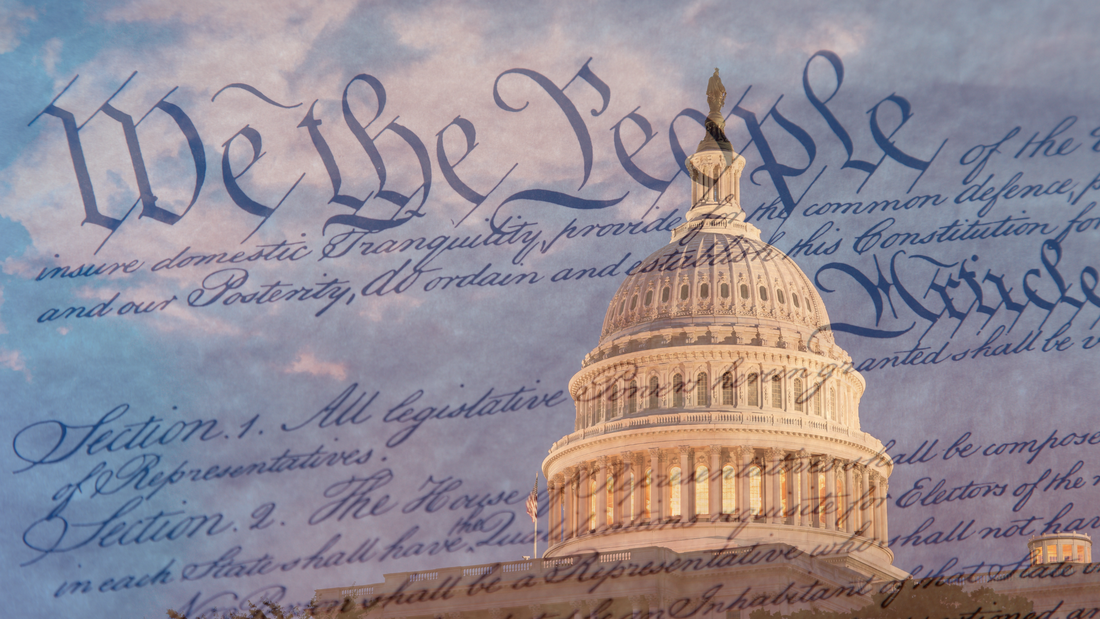
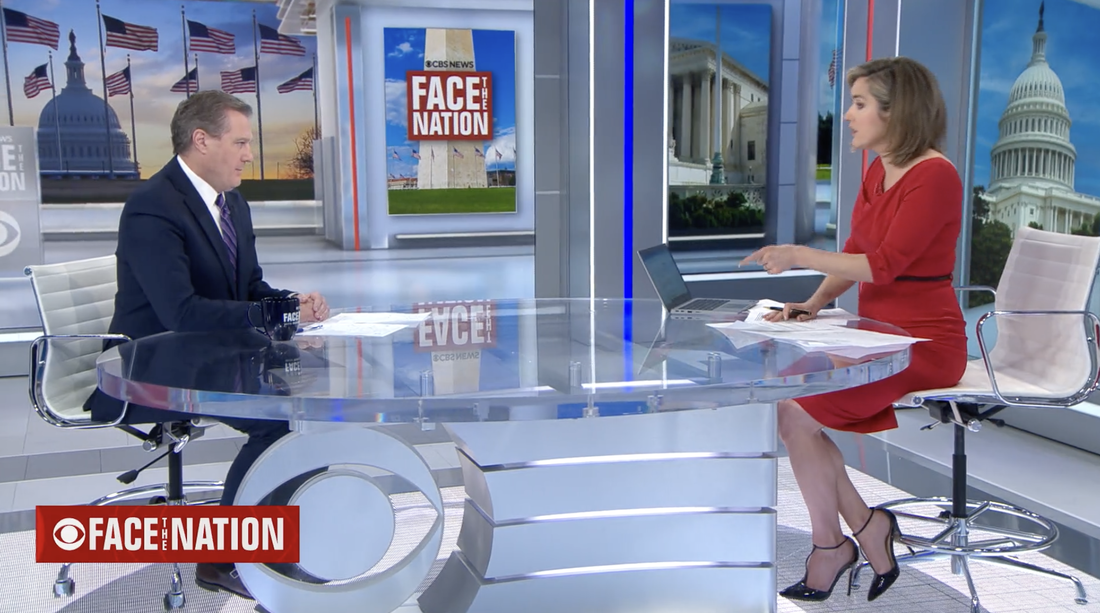
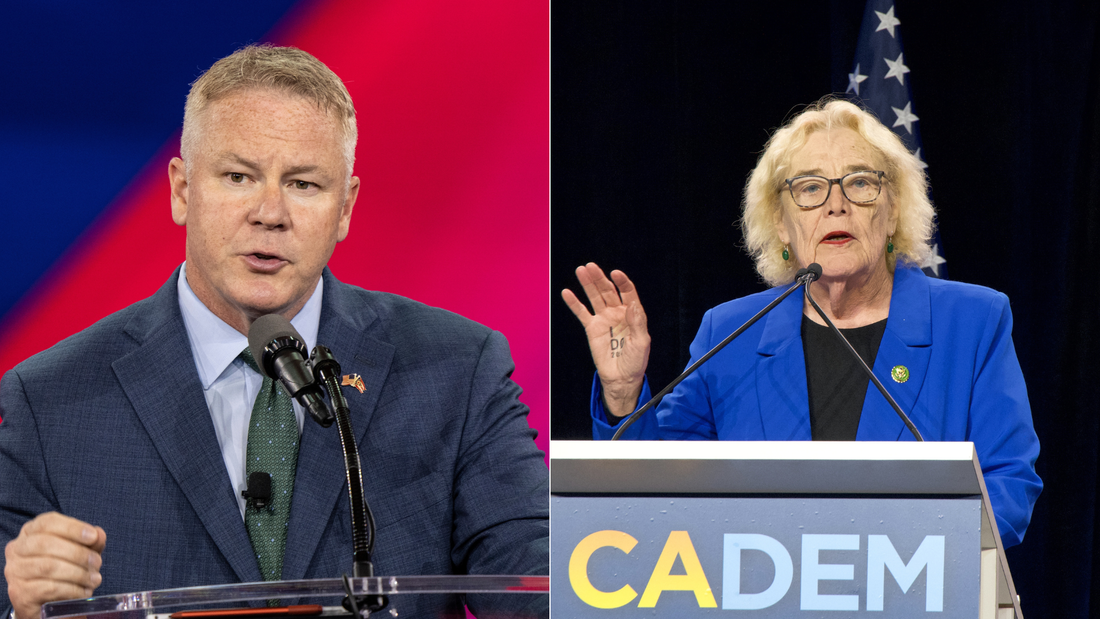
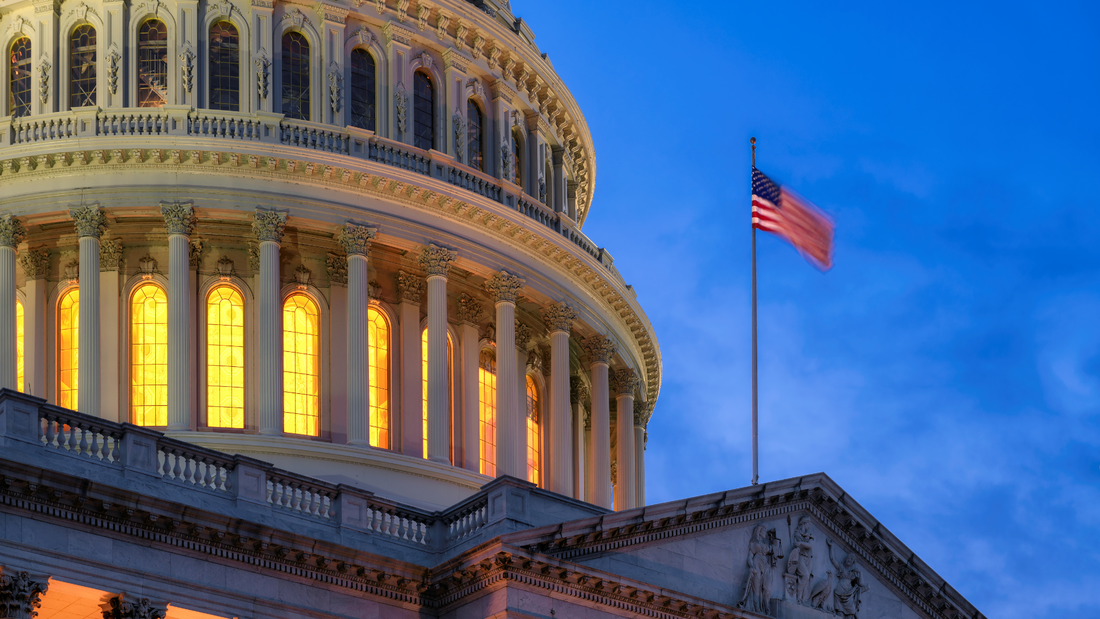
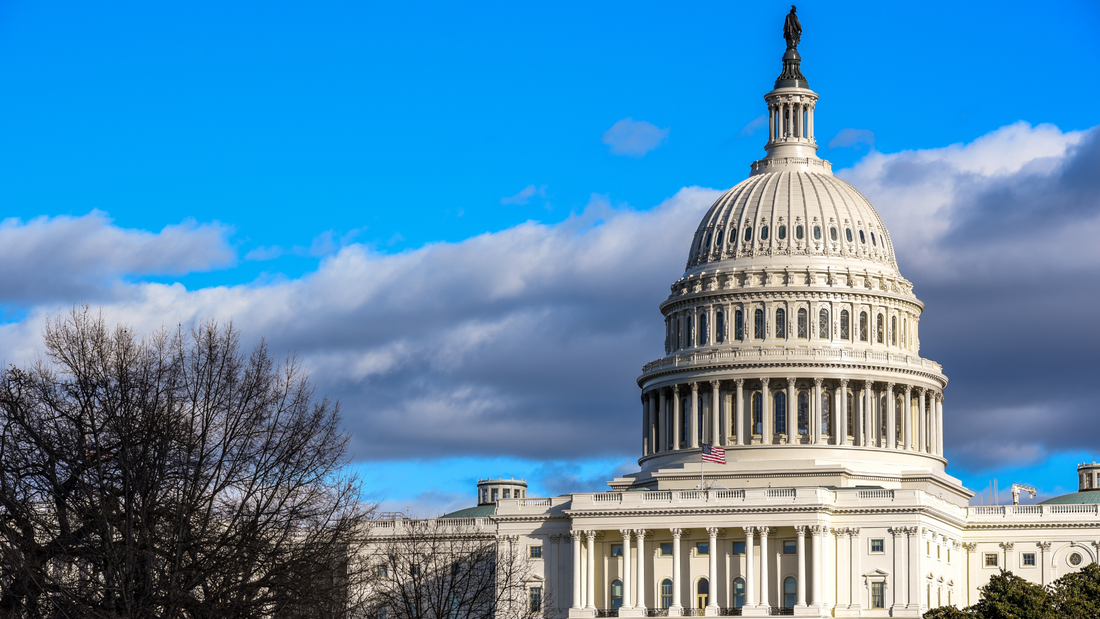
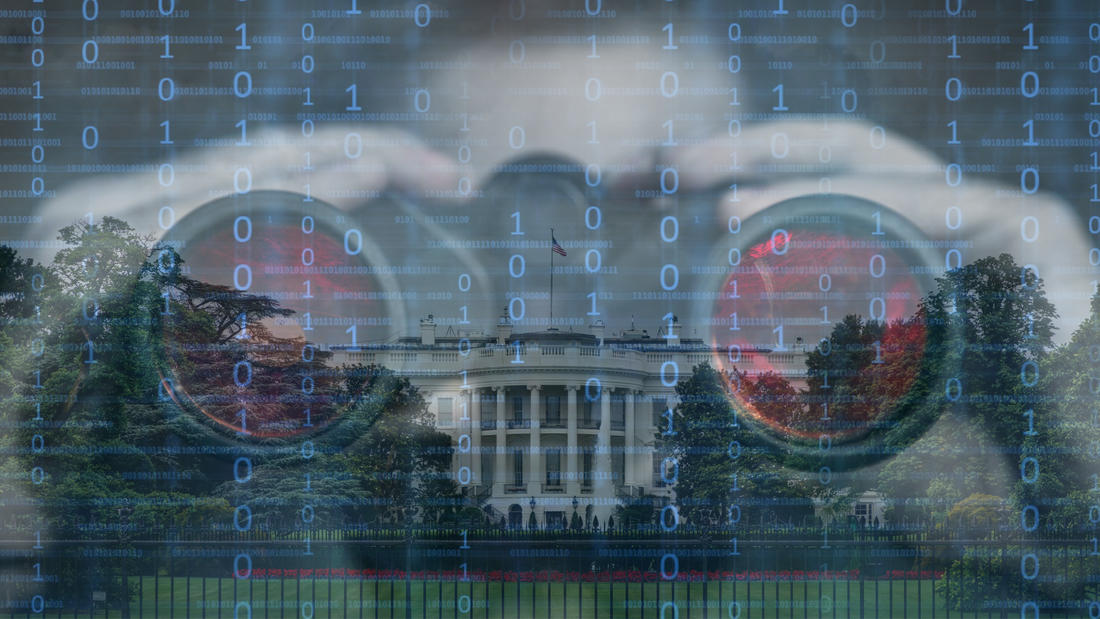

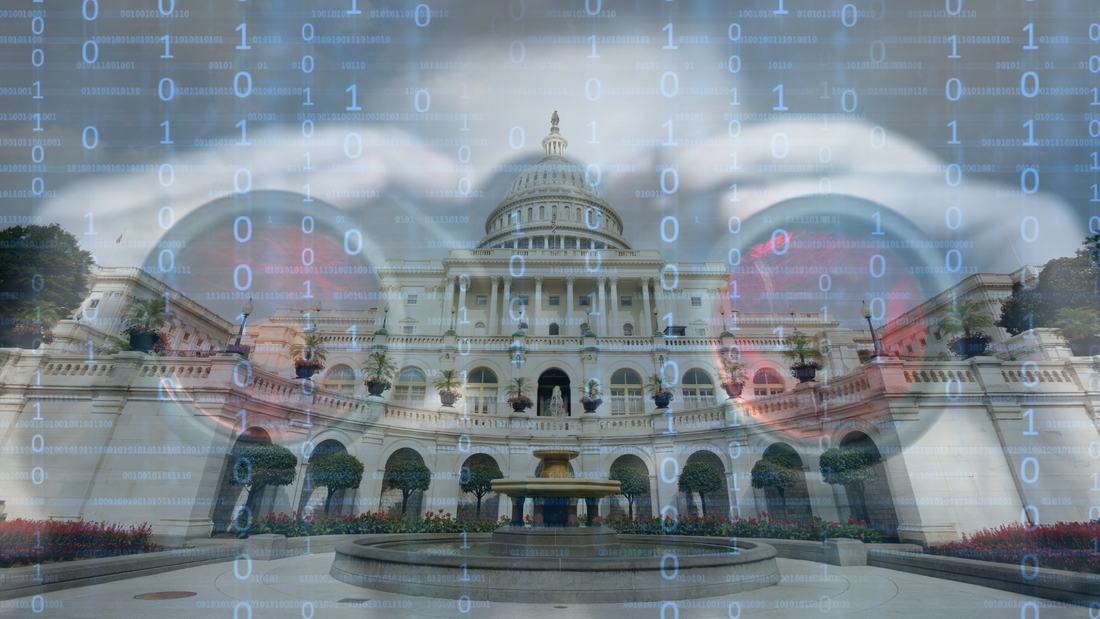
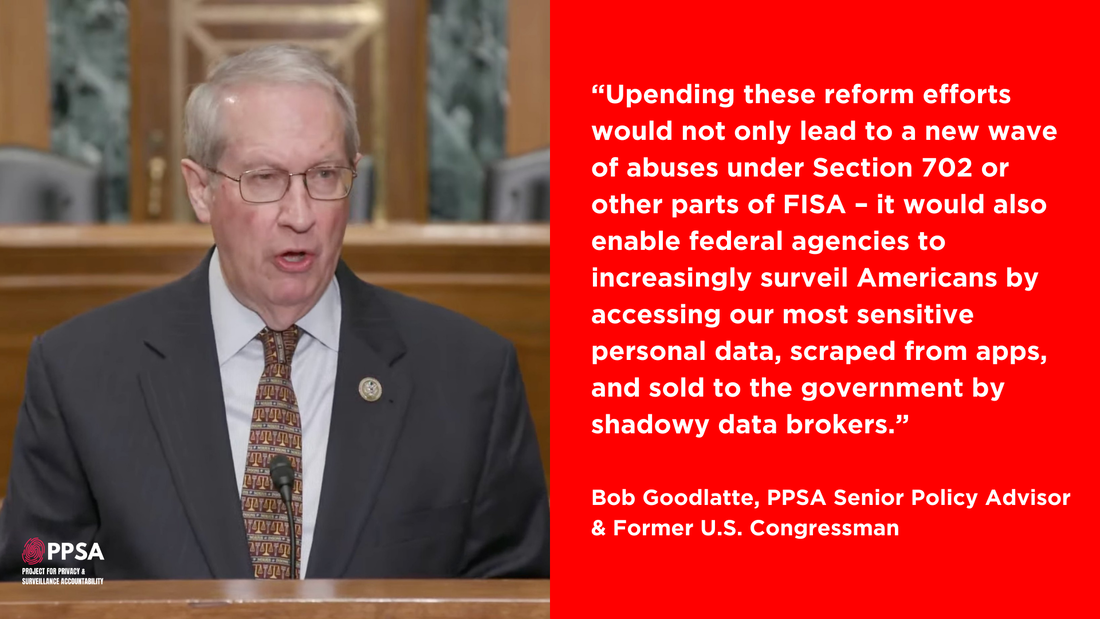
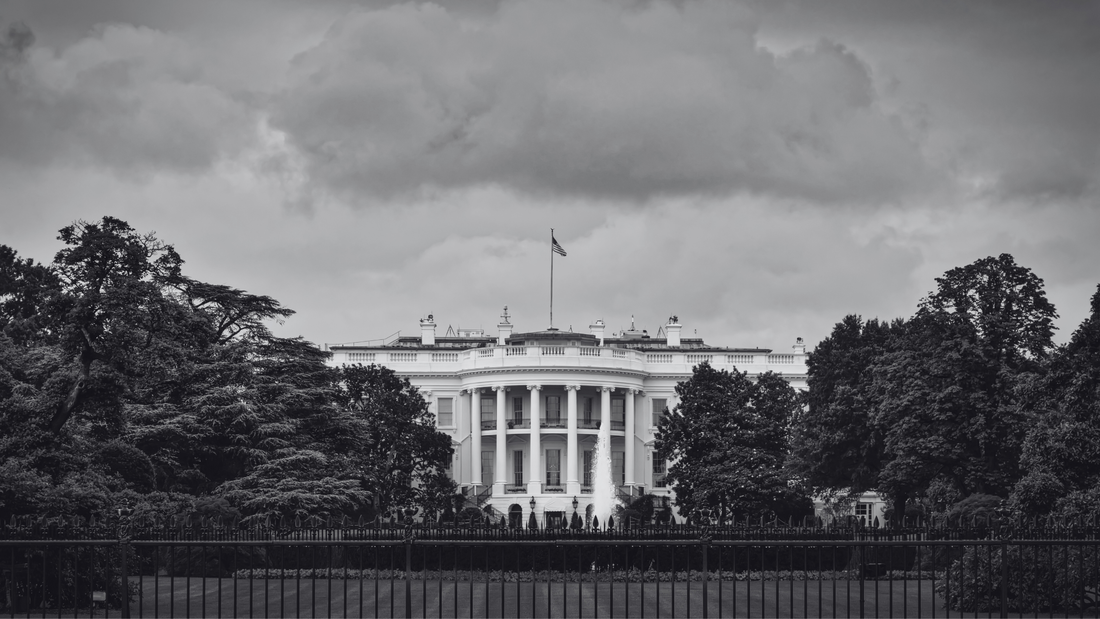
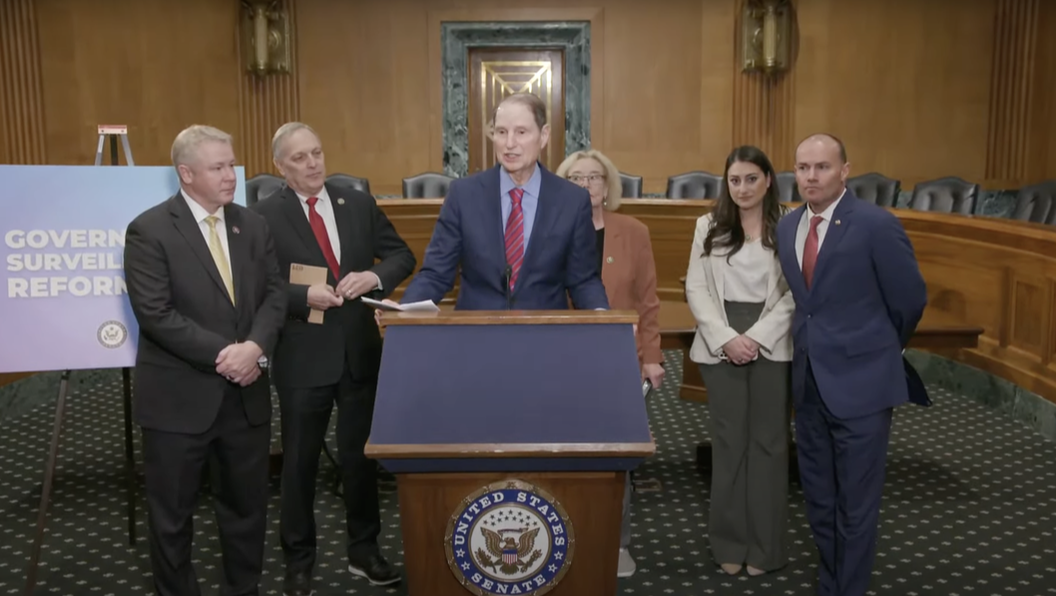
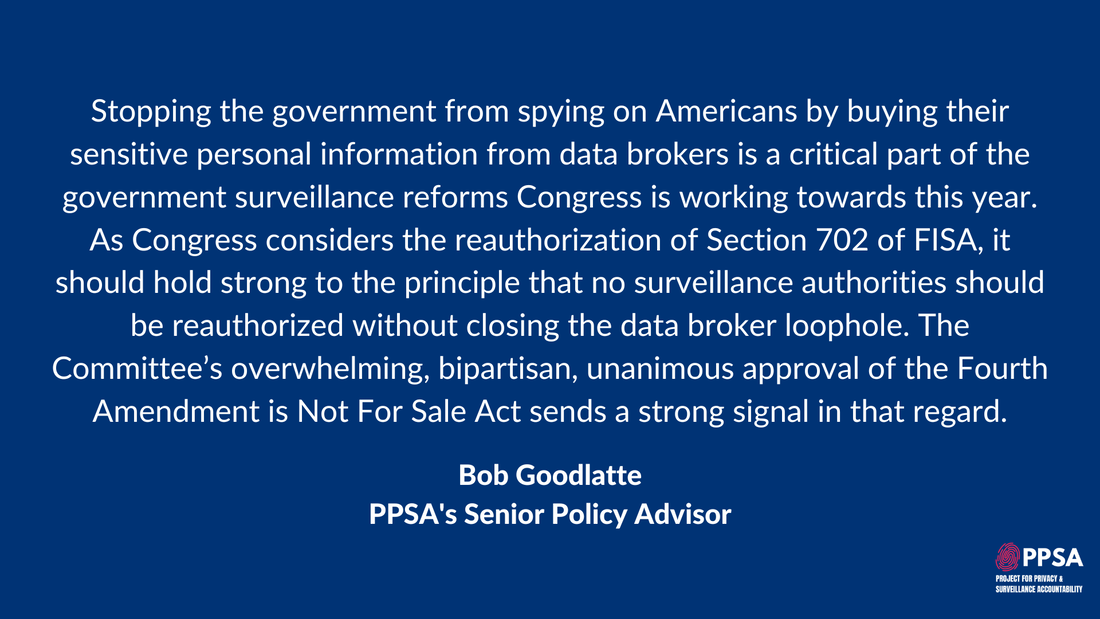
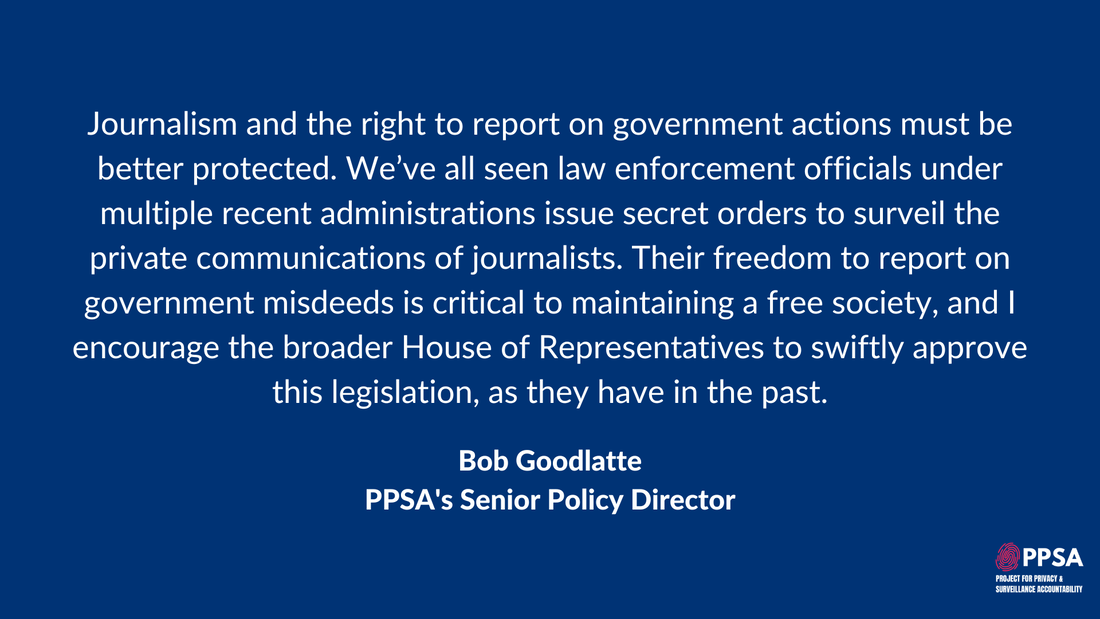
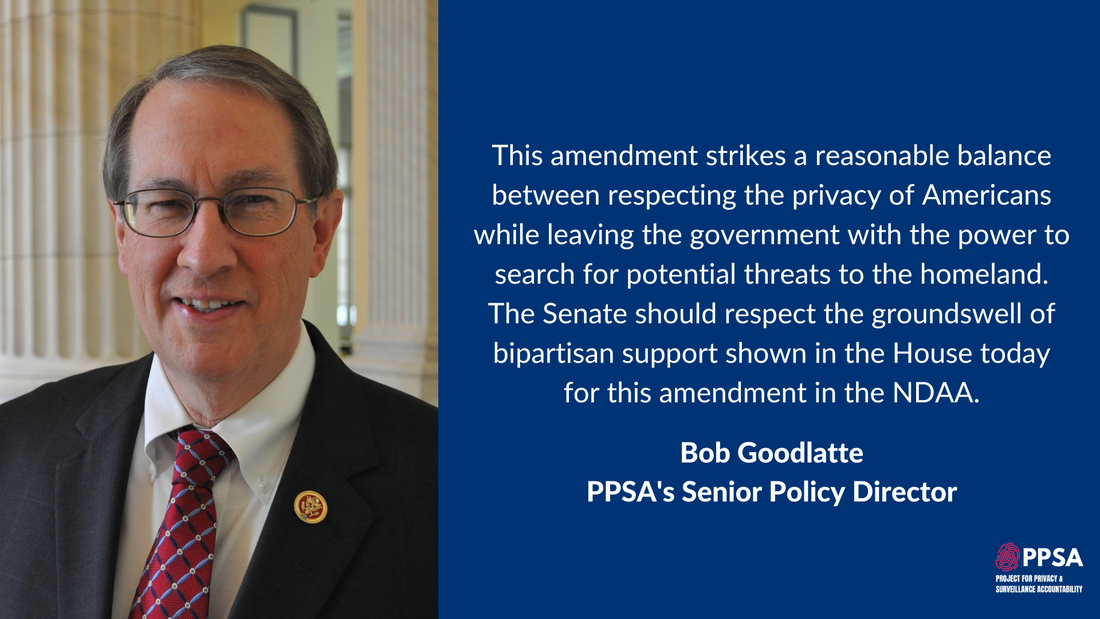

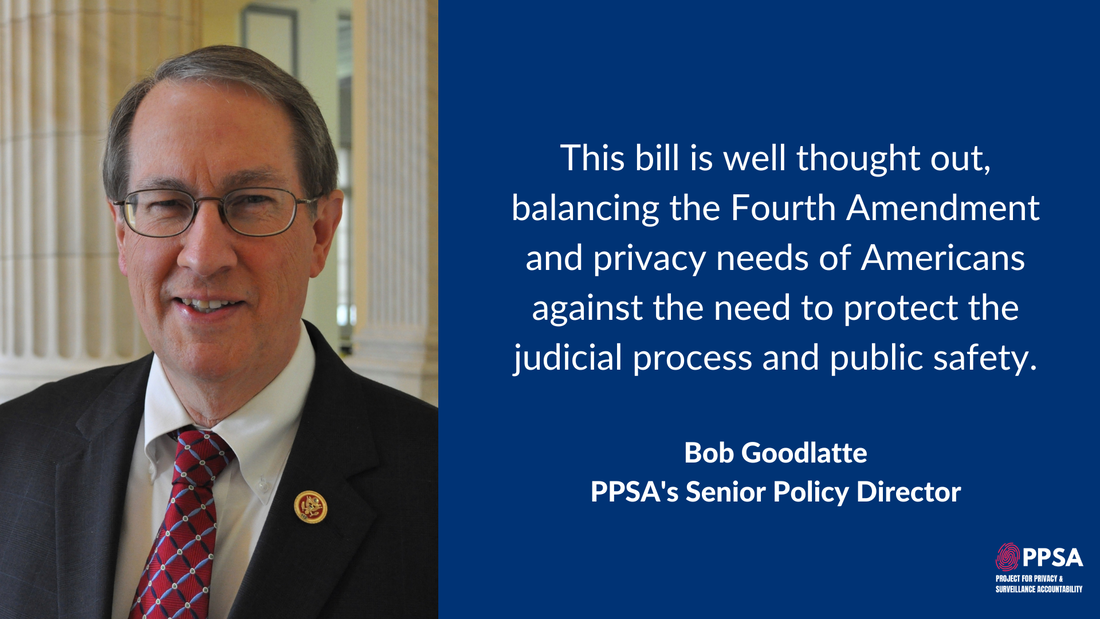
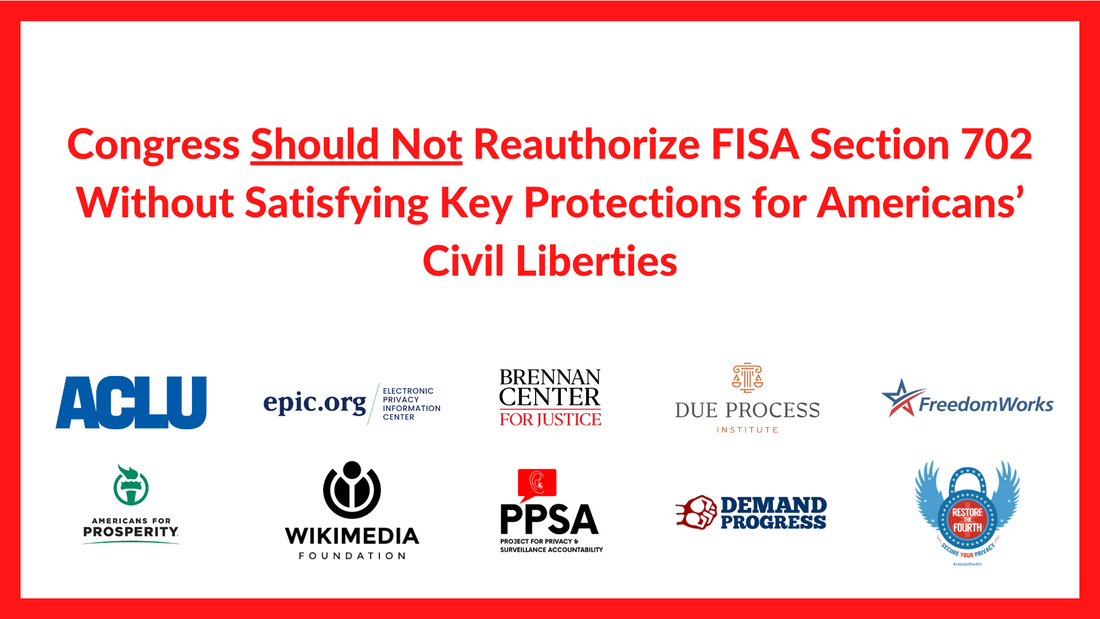
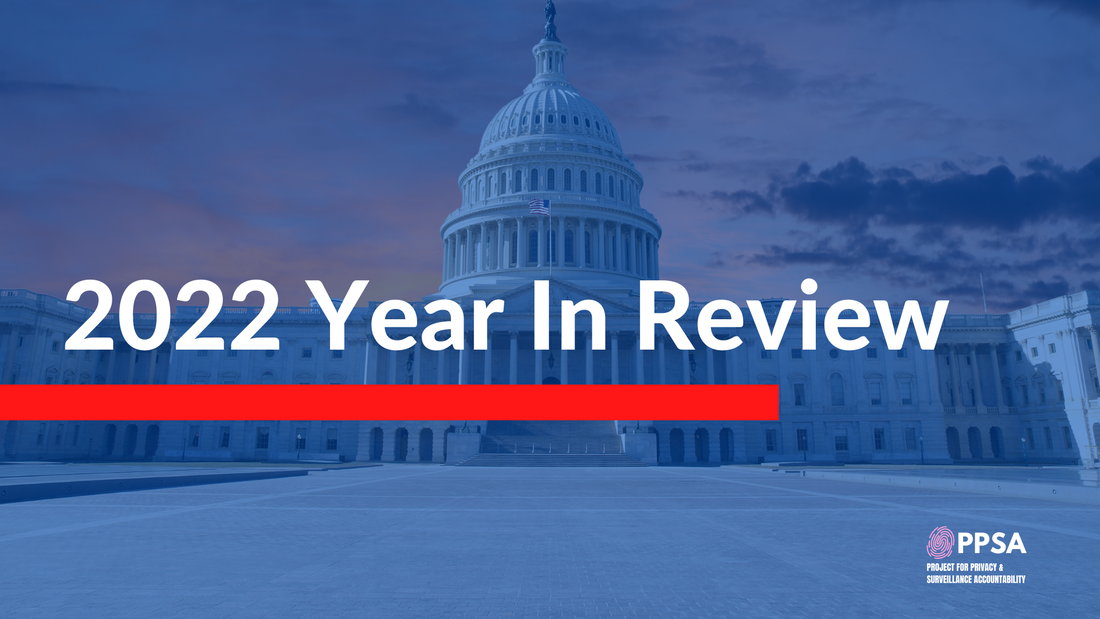
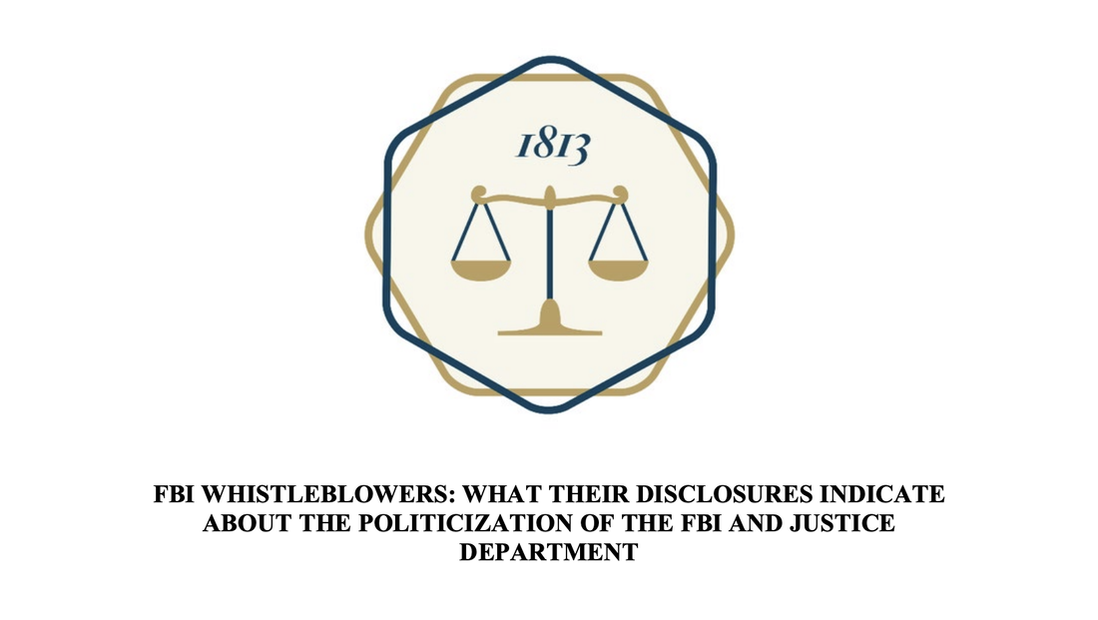
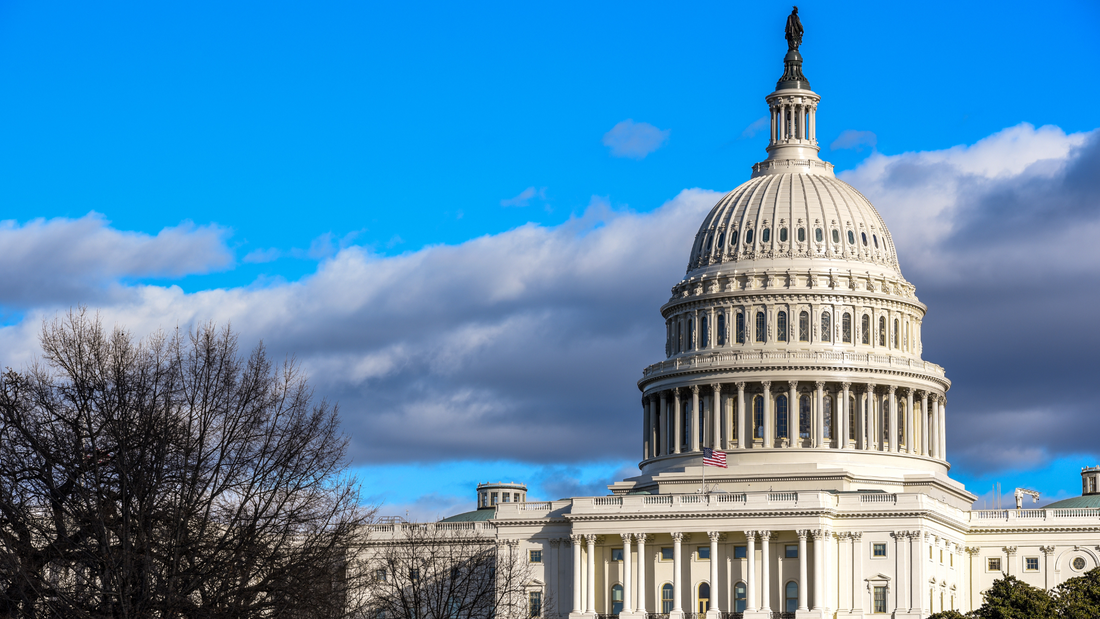
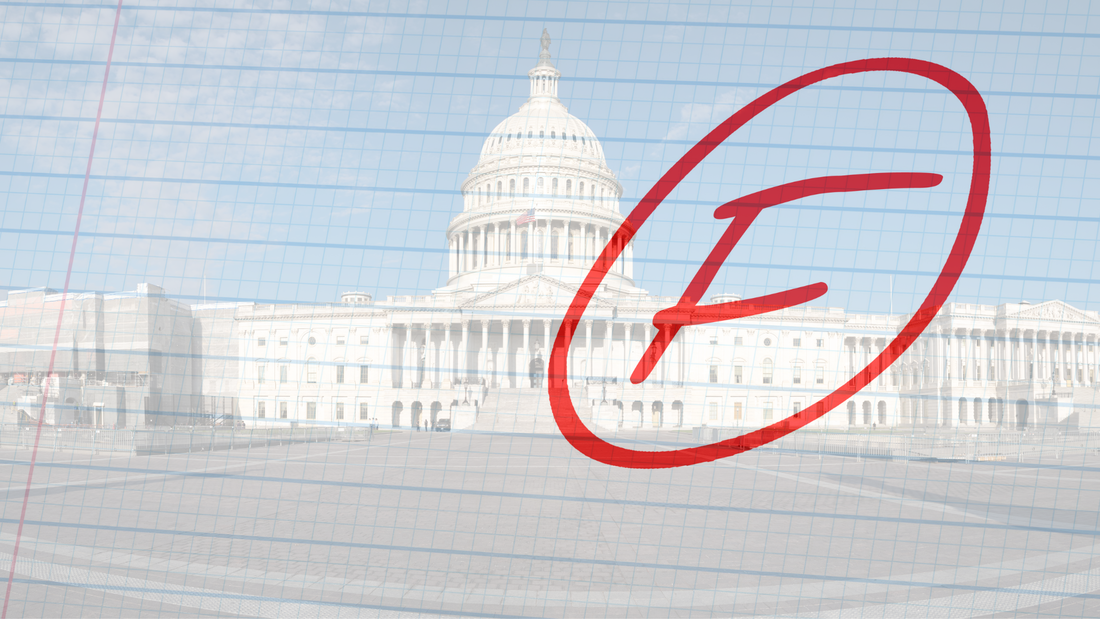

 RSS Feed
RSS Feed